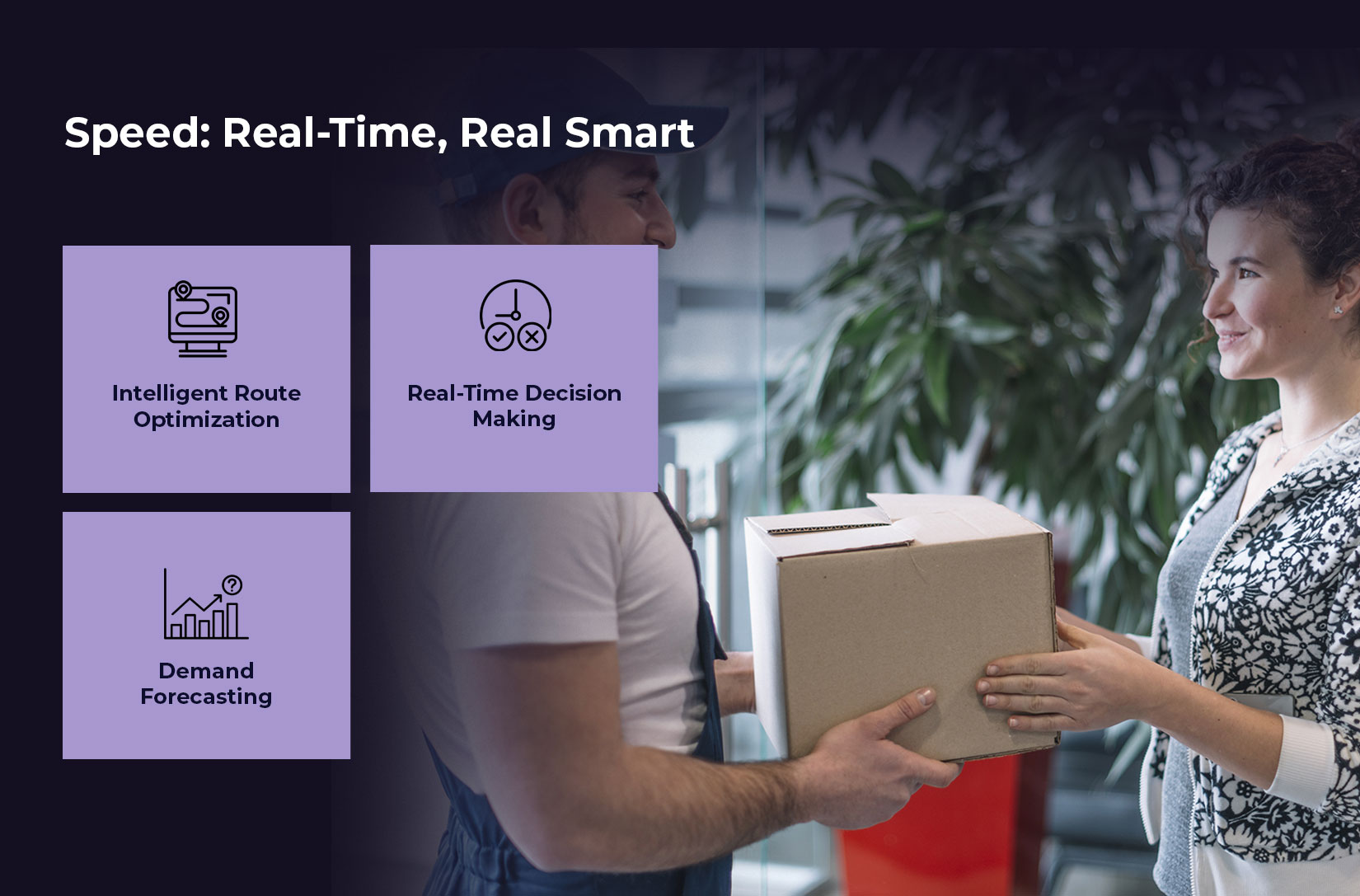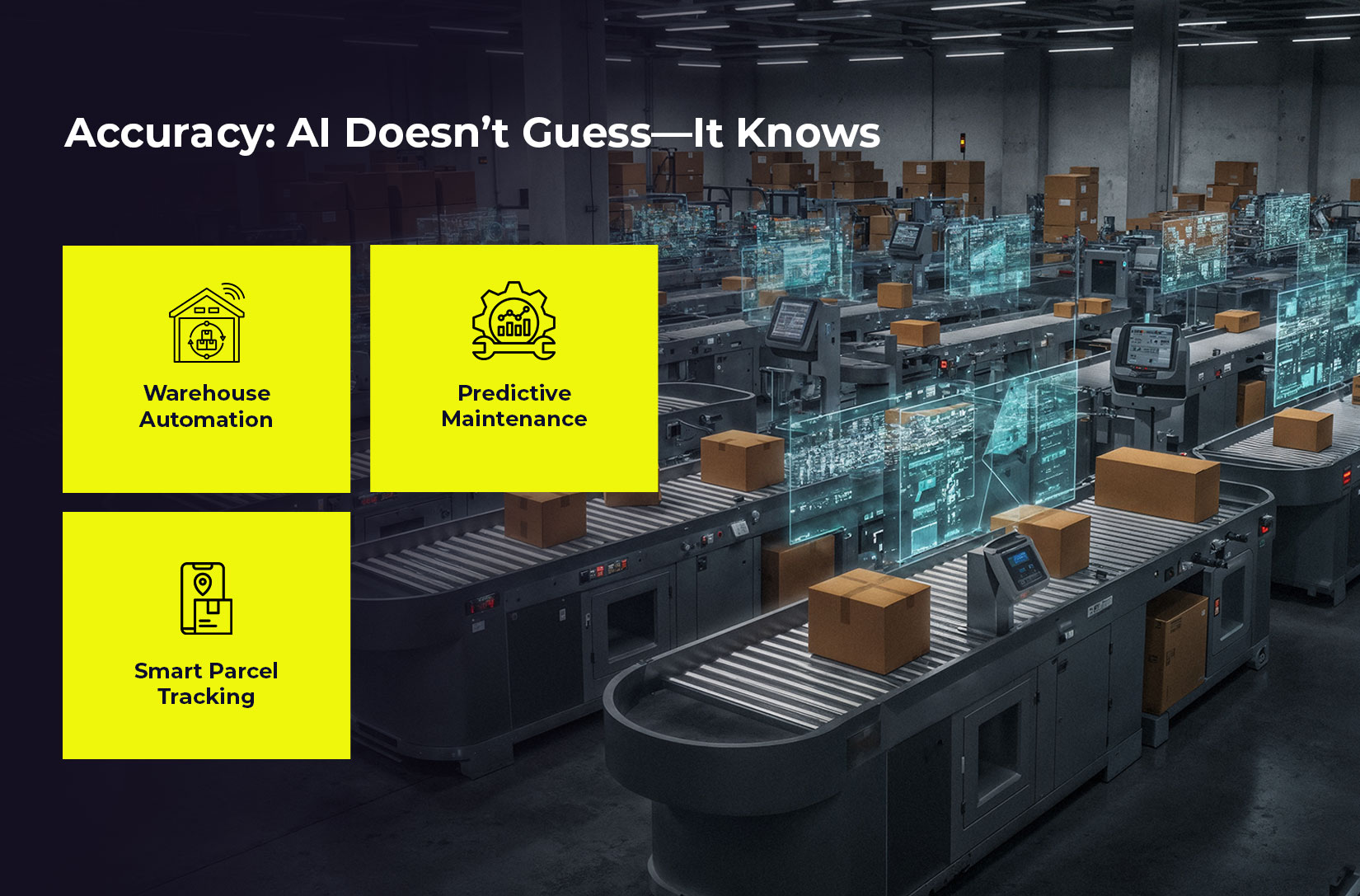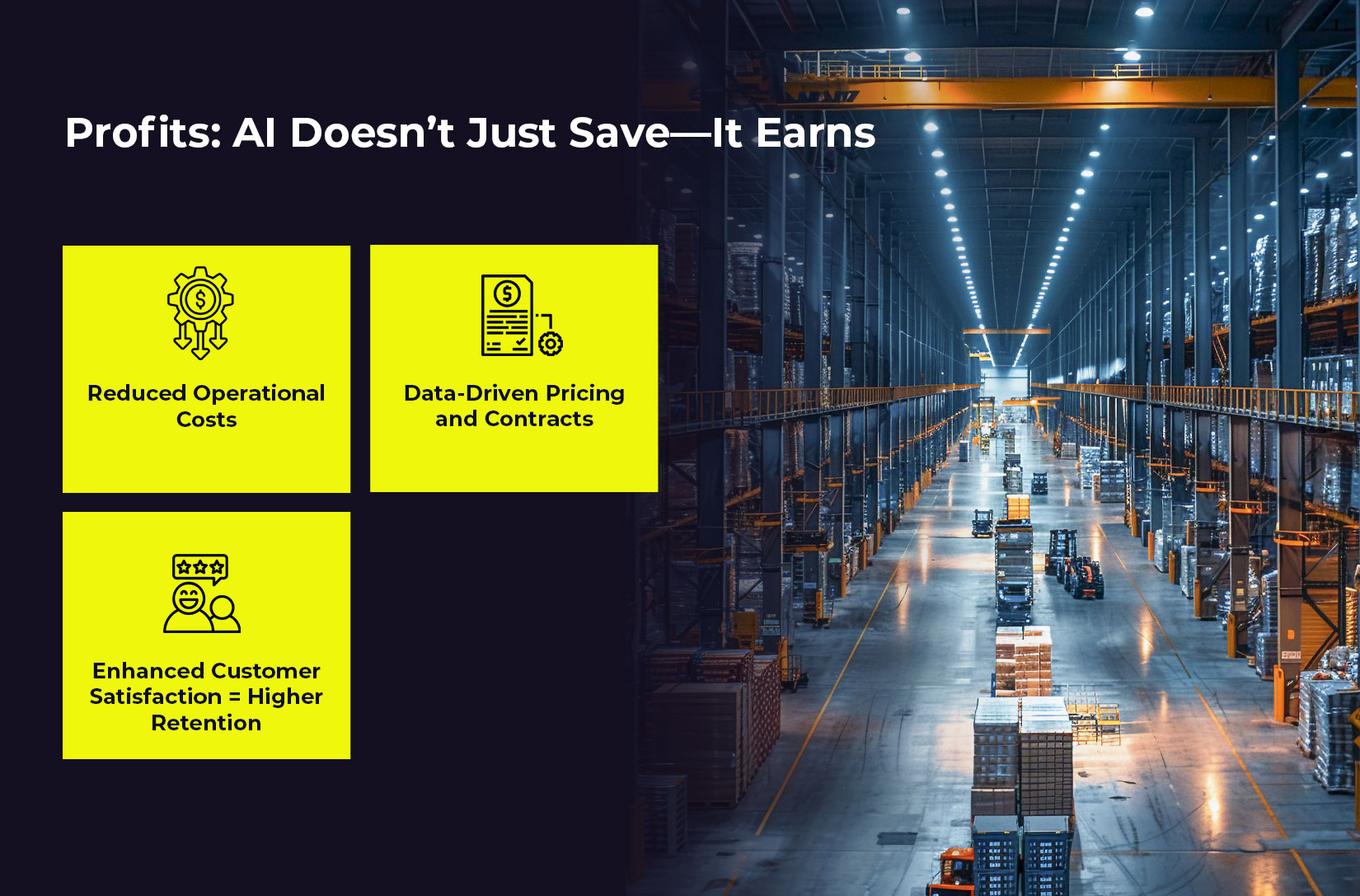
How AI Logistics Software Boosts Speed, Accuracy, and Profits
In today’s high competitive logistics environment, speed and precision are not a want but a need. With the global supply chains getting more complex, logistics leaders and businesses are turning to AI logistics software to gain the edge. Artificial intelligence is proving to be a necessity and a game changer. From predicting demand to planning routes optimally and reducing the unnecessary miles.
This article will explore how the AI logistics software is changing the industry. Boosting speed, improving accuracy and eventually driving profitability.
The Rise of AI in Logistics
There is a lot of pressure on the logistics industry. The traditional system cannot keep up with the rising fuel costs, labor shortages and soaring customer expectations. As per McKinsey, AI-driven supply chain management can reduce logistics costs by 15%. It can also improve inventory levels by 35% and increase service levels by 65%.
This shift has given a rise to an increase in demand for AI logistics software. An intelligent platforms that harness data to make real-time decisions, automate operations, and predict outcomes with astonishing accuracy.
Speed: Real-Time, Real Smart

Speed is the lifeblood of logistics, and AI delivers it in spades.
1. Intelligent Route Optimization:
AI-powered logistics software is able to evaluate thousands of route permutations in seconds. To plan the most efficient path it considers- traffic, weather, delivery windows and vehicle availability. This results in faster deliveries with reduced fuel consumption and happier customers. A study by DHL, found that AI-based route planning can reduce delivery times by up to 25%.
2. Real-Time Decision Making:
With the help of AI, logistics team are not just able to react but predict. Live data from sensors, telematics and traffic feeds are analyzed by AI logistics platforms. In case of road closure or vehicle breakdown, the system automatically reroutes deliveries.
3. Demand Forecasting:
AI is able to predict the changes in demand by analyzing historical data, seasonality and market trends. This helps in better planning for inventory and transport resources.
Accuracy: AI Doesn’t Guess, It Knows

Mistakes in logistics can get very costly. A misrouted package or a missed delivery window, each error can reduce the margins and customer trust. This is where AI logistics software prove its worth.
1. Warehouse Automation:
Modern warehouses are getting more autonomous with the help of robot picking systems and AI-driven inventory management. By using machine vision and predictive analytics these systems are able to minimize errors, prevent stockouts and reduce human involvement. A report by Gartner states, AI in warehouse management can reduce picking errors by up to 90%.
2. Predictive Maintenance:
Logistics software powered by AI uses sensor data to predict vehicle maintenance, before is a surprise breakdown and they turn into costly downtime. This helps in increasing fleet uptime and reduces emergency repair costs.
3. Smart Parcel Tracking:
With the help of AI tracking is not just passive, its intelligent. The system is able to flag anomalies like delays, lost parcels or unexpected detours. It can also suggest corrective actions before a customer raises a compliant.
Profits: AI Doesn’t Just Save, It Earns

AI does cut costs, but more importantly it opens new avenues for growth.
1. Reduced Operational Costs:
AI platforms for logistics is significantly able to lower labor and administrative costs by automating tasks like dispatching, routing and inventory control. With fewer manual errors, there are fewer costly reversals and refunds.
2. Data-Driven Pricing and Contracts:
The algorithms is able to suggest optimal pricing models based on real-time demand and operational costs. With this third-party logistics have more competitive contracts without impacting the margins.
3. Enhanced Customer Satisfaction = Higher Retention:
The customer experience is shaped with the speed and accuracy of the delivery. With the help of AI logistics solutions, on-time delivery rates improve, order accuracy rises and communication becomes proactive. If the customers are happy, there will be repeat business.
Who’s Using the AI Logistics Software and Winning?
Businesses from all areas of logistics are making significant investments in AI. Here are some notable examples:
– Amazon uses AI to improve its last-mile delivery routes, control warehouse automation, and predict product demand.
– Maersk uses machine learning to forecast port congestion and lower vessel fuel usage.
– FedEx has introduced artificial intelligence (AI) capabilities to predict delivery volumes and maximize fleet usage.
These businesses are using AI into their logistics plans rather than merely testing it.
Choosing the Best AI Logistics Software
There are an abundance of possibilities on the market. What qualities should logistics executives consider when assessing the top AI logistics software, then?
Here are some must-haves:
– Analytics in real time: Actionable insights, rather than just dashboards.
– Scalability: A system that expands to accommodate your business’s needs.
– Integration: It should easily connect to your ERP, WMS, and TMS systems.
– User-friendly interface: It shouldn’t require a Ph.D. to use.
– Personalization: Each supply chain is different. The program ought to adjust.
An effective AI logistics platform redefines current procedures rather than merely digitizing them.
Future Trends: Where AI Logistics Is Heading
AI in logistics has more than simply a bright future. It is self-sufficient.
1. Autonomous Delivery Vehicles:
Drones and driverless vehicles are starting to make a comeback in last-mile delivery as AI takes care of navigation and traffic data.
2. Cognitive Supply Chains:
These systems that reason and learn in addition to responding to supply chain events. Anticipate AI to start using predictive models to make vendor and procurement decisions.
3. Generative AI in Logistics:
In the near future, tools such as generative AI will be able to simulate supply chain disruptions and suggest the best course of action instantly.
The bottom line? AI will be the conductor as logistics transition from being managed to being orchestrated.
Conclusion
AI isn’t the future of logistics, it’s already here, driving measurable impact across the board. From real-time route planning to predictive maintenance, AI logistics software is delivering faster speeds, higher accuracy, and fatter profit margins.
For businesses looking to gain an edge, now is the time to invest in the best AI logistics software. Whether it’s an AI-powered logistics software suite or a specialized AI logistics solution, the supply chains of tomorrow will be built on the intelligence of today. So, take the leap and book a demo with LogiNext Solutions for the best AI logistic software today.
73







@LogiNext